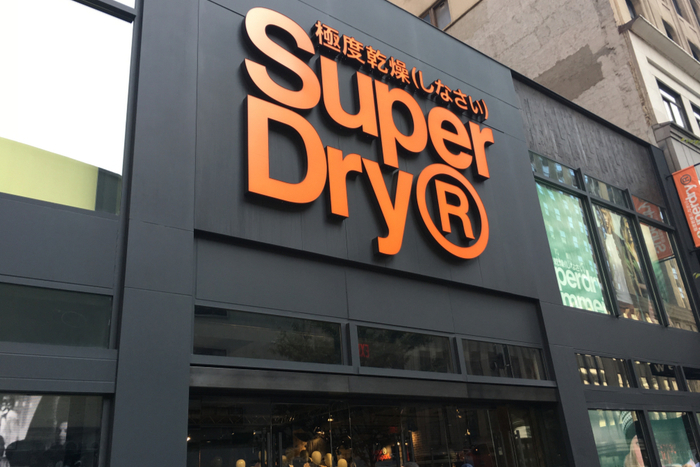Despite only recently launching, Savage X Fenty regularly receives more visible praise than other lingerie retailers. While much of this could be credited to the fact it was founded by music superstar Rihanna, it’s also worth noting the inclusivity ethos ingrained into the business.
Indeed, it arguably attracts more buzz and attention about its inclusivity-driven business than regular retailers, such as Marks & Spencer and Missguided, which have both regularly included a broad range of models in their campaigns.
“Rihanna has a powerful growing fanbase and she designs with them in mind by eliminating all boundaries and broadening the definition of beauty in an industry that has traditionally had a more narrow definition,” said Lisa Perrone, chief creative officer at Stylyze, a merchandising-as-a-service platform.
“She has taken an unapologetic approach to democratising the once thought of ‘risky’ world of lingerie.
“While other fashion brands have begun to revolutionize this space gradually, Rhianna has taken a no-holds-barred approach in a much more sensitive niche of fashion, lingerie and intimates.”
Alongside prioritising inclusivity, the Savage X Fenty also dedicates a large proportion of its marketing budget to social media and the influencers on these platforms to create viral advertising content.
Ruth Griffin, retail director at the law firm Gowling WLG, explained why more retailers were using these non-traditional channels to market themselves over traditional ones.
“The confidence with which Fenty and others dedicate so much resource to this channel is a reflection of how effective non-traditional methods are at reaching a certain audience,” she said.
“Rihanna has taken an unapologetic approach to democratising the once thought of ‘risky’ world of lingerie”
“It is also a channel that allows for speed of sharing and engagement, which, again, reflects the audience they are trying to target.
“Instead of simply complementing traditional approaches to reaching customers, social media and influencer marketing is leading the way for those with the confidence to allow others to contribute to the customer journey.
“While perceived risk is embedded in the approach, the strategy which Fenty has taken where the selection of and interaction with influencers that qualify and complement the brand, is where their success lies – which highlights the inherent need to craft the right approach for a particular brand when taking this route.”
During the pandemic, retailers have needed to resort to alternative methods in order to engage with customers. Being a direct-to-consumer online retailer, Savage X Fenty was no different. It streamed a fashion show via Amazon Prime, and Louis Vuitton also live streamed its shows for consumers to watch due to travel restrictions around Paris Fashion Week.
“Video is quickly becoming the preferred content format for customers, particularly when they can consume it on their preferred device – their mobile phone, and it is here to stay,” Perrone told Retail Gazette.
“As content hungry customers scroll through Instagram and Facebook, their feeds are peppered with more and more video content from coveted vloggers, mainstream retailers and viral 15 minute of famers.
“A streamed fashion show is the perfect content to serve up in this environment. It has all the elements of style and entertainment delivered right in front of its best audience, an engaged one.
She added that all retailers needed to capitalise on using technology services such as streaming to tap into their customer base.
“Being inclusive widens your market share”
“All the technology that is needed is sitting in the hands of everyone with a smartphone,” she said.
“The strategy of streaming live can happen for any retailer on any scale. It’s as simple as putting together the content and going live.
“In a visual world, the better the content the more attention you will attract from the right audience, but the place to start already exists.”
During and after Savage X Fenty’s fashion show, the online lingerie retailer was met with praise due to its diversity of models – they represented a range of ages, ethnicities and body shapes. This was pertinent given inclusion was not always a priority for lingerie retailers in the past – one only has to look at Victoria’s Secret’s track record as an example of this.
“Inclusivity taps into the realisation by consumers as to the power they have,” Griffin told Retail Gazette.
“Consumers have always cared about inclusivity but this combined with the realisation of their power to make retailers change means that can see that by expressing how they feel ‘excluded’ makes a brand become more ‘inclusive’ so as to attract those ‘excluded’ consumers.
“In the current world climate, consumers are focusing on the now and each day, who they are today and how the brand will reflect their self-identity.”
She added that the evolution of how marketing and advertising is done has undergone fundamental changes over the last 40 years. She highlighted that the marketing process has gone from being dictated to consumers to being a digital interaction.

“This inherently implies inclusion and indeed that customers do care more about this, especially given the growing recognition of ethnic, body and gender diversity – consumers therefore want to be sold to in a way that reflects this,” Griffin added.
“Those that ignore the cultural shift and simply pursue traditional static marketing models that exclude on the basis of targeting particular racial or physical profiles, are likely to be left behind.”
Perrone said: “Showcasing models with much greater diversity has enabled consumers to better relate to products and imagine what they will look like on them.
“It’s a simple yet brilliant way to connect with consumers and provide inspiration that is attainable.”
While Savage X Fenty has been ahead of the trend by capitalising on the use of social media and technology, it still has no physical retail presence. Instead it has seen success trading direct from its own website, offering shipping to 210 countries. And as subscription services become a growing trend in retail, it has managed to tap into this market with its own membership program – one that grants members exclusive deals and offers, early access to product releases and curated boxes by Rihanna.
While the success is clear, can other businesses see the same level of success if they follow a similar business model to Savage X Fenty?
“While much of Fenty’s success lies in its marketing strategy and the way it interacts with customers, its key point of differentiation is the trust Rihanna embodies as someone who is authentic and has taken the time to create a brand that reflects who she is today,” Griffin explained.
“Finding a spokesperson or brand culture that replicates this is, therefore, more difficult than taking on some of the same strategic/ operational approaches as Fenty.
“Other businesses can absolutely have the same success if they are authentic while using this same approach.
“Inclusivity and having a broader definition of beauty shouldn’t be a trend, but a path to taking a humanized approach to the fashion business and business in general.”
Click here to sign up to Retail Gazette‘s free daily email newsletter


















